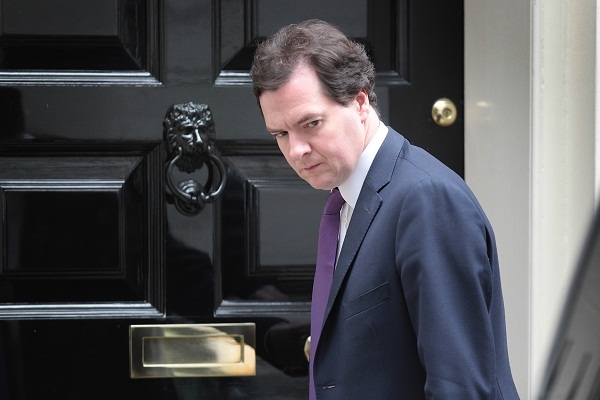‘Unfortunately, it’s not enough.’ That is, broadly, the conclusion of John Longworth, the director of the British Chamber of Commerce, who has penned a visceral critique of the government’s economic policy in the Observer. Nothing, it seems, is sufficient: half-hearted infrastructure investment, non-existent aviation policy, lethargic borrowing to business, and regulatory reform that leaves businesses ‘mired in a thicket of red tape’.
Longworth laments economic policy being determined by ‘political short-termism, electoral calculation and presentation’. This swipe at George Osborne adds to the sense that professional and international bodies are turning on the chancellor, after the IMF’s warning last week (rather callous of it, considering that Osborne has been following its prescription for the most part). There is more woe for Osborne in today’s papers: a Comres poll finds that a plurality of voters believe the chancellor should be sacked, with 22 per cent of professed Tory voters saying that Osborne is out of his depth. Plus, Lord Lawson has said that Osborne should give up his role as the Tories’ political strategist, adding that the Budget was not Osborne’s finest hour. It was scarcely a ringing endorsement.
Longworth also attacks the pernicious myth of government powerless. He writes,
‘Companies recognise that ministers can’t magically alter world economic trends and that a solution to the ongoing eurozone crisis is not in the gift of Westminster.’
But then insists that there are ‘levers which they can control’. Longworth wants ‘bold’ infrastructure investment and increased aviation capacity to boost trade and provide short-term jobs, paid for by a securitisation scheme to encourage private sector involvement so as not to extend the deficit.
It’s natural for the BCC to push for infrastructure investment. Others might call for deep supply-side reform; others for real cuts in public expenditure; others, still, for further debt-funded stimulus. Fatalists, of course, will say that the government is powerless against today’s economic gales, and probably tomorrow’s too.






Comments